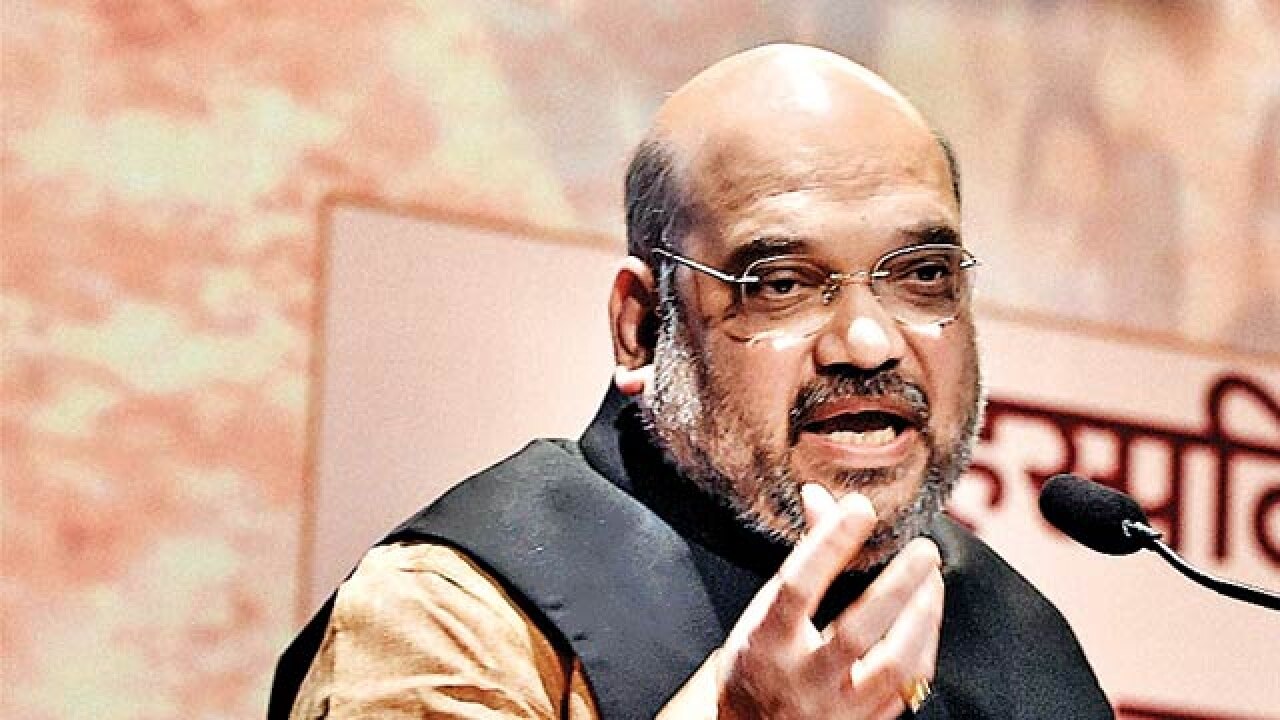
BJP president Amit Shah’s interaction with the media in which he sought to clarify that his clarion call for a “Congress-mukt Bharat” was not to be interpreted literally is a grudging acceptance that political changes occur at a modest pace in a parliamentary democracy. Shah claimed that the phrase indicated his desire to rid the country of the disorderly system that has come into existence because of decades of Congress rule. The BJP has developed a pan-India footprint while that of the Congress has weakened over the years. Even in many states that it is out of power, the Congress continues to be the main opposition party. The logic of anti-incumbency mandates that the opposition has always a good chance in electoral politics if it can win the confidence of the electorate. It is another matter that the Congress will have to first revive its moribund organisation if it wants to reclaim its lost position as India’s pre-eminent national party.
There is another reason why Shah’s desire of a “Congress mukt Bharat” shows no signs of becoming an immediate reality. In the recent round of elections to five state assemblies, the Congress, despite losing power in two states, still managed to win 115 seats against the 64 seats won by the BJP. Even in terms of vote share, the Congress has not done as badly in these states. In Assam, Congress won 31 per cent of the votes polled, in Kerala, 23.7 per cent, in Puducherry 30.6 per cent, in Tamil Nadu 6.4 per cent, and in West Bengal 12.3 per cent. In contrast, the BJP has done extraordinarily well only in Assam, by winning 29.5 per cent of the vote share. The BJP’s vote share in West Bengal is 10.2 per cent, in Kerala 10.5 per cent, and in Tamil Nadu and Puducherry 2.4 per cent. Given these figures, it was only natural for Shah to play down his “Congress mukt Bharat” remark. In the states headed to the polls in 2017 like Uttar Pradesh, Uttarakhand, and Punjab, the Congress is no pushover either.
While Congress can claim some sort of vindication, if it is of any consolation, at Shah “modifying” his “Congress mukt Bharat” agenda, the BJP president’s remarks about Congress leaders placing “selfish interests” over everything else offers ample scope for deliberation in Congress circles. In their factional battles and their willingness to subordinate themselves to the Gandhi family, Congress leaders have ensured that considerable political talent has been lost at the grass roots and at various levels of the party hierarchy. It is this sense of drift and working at cross purposes that Amit Shah captured and evoked when he spoke of an impending “Congress mukt Bharat”. At another level, Shah’s decision to drop the grandstanding against the Congress, is a tacit recognition of the growing clout of regional parties. It is the regional parties that are stumbling blocks to the BJP’s onward progress in many states, and not the Congress. Unlike 2014 when the BJP was pitted against a Congress-ruled government at the Centre, in the next general elections, the BJP will have to take the fight to regional parties in several large states. With successive Congress defeats not translating automatically into victories for the BJP in the states, the challenge of dominating a large and diverse country like India is becoming evident to the ambitious and astute BJP chief. This acceptance will help the BJP to set more realistic targets for itself in the years to come.